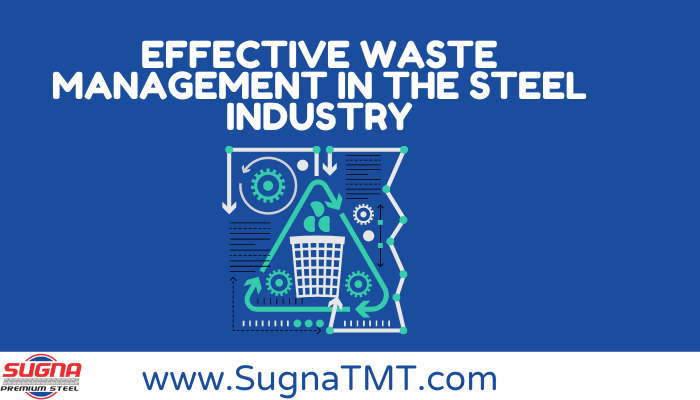Waste management in the steel industry is crucial for environmental sustainability and operational efficiency. Proper waste management practices can reduce pollution, conserve resources, and cut costs. Let’s explore the key aspects of waste management in the steel industry.
Importance of Waste Management
Environmental Impact
Reduces Pollution Proper waste management minimizes the release of harmful pollutants into the environment. This includes reducing air and water pollution from steel production processes.
Conserves Resources Efficient waste management conserves natural resources by recycling and reusing materials. This reduces the need for raw material extraction, preserving ecosystems.
Economic Benefits
Cuts Costs Managing waste effectively can lower operational costs. Recycling scrap steel, for instance, is cheaper than sourcing new raw materials.
Enhances Efficiency Efficient waste management processes streamline production, reducing downtime and improving overall productivity.
Types of Waste in the Steel Industry
Solid Waste
Slag A by-product of steelmaking, slag can be used in construction and road-building, reducing the need for new materials.
Dust and Mill Scale Collected dust and mill scale can be recycled back into the steelmaking process, minimizing waste.
Liquid Waste
Effluent Effluent from steel plants must be treated to remove contaminants before being discharged. This protects water bodies from pollution.
Gaseous Waste
Emissions Controlling emissions is vital. Implementing technologies like scrubbers and filters can reduce harmful gases released into the atmosphere.
Waste Management Strategies

Recycling and Reusing
Scrap Steel Recycling Recycling scrap steel is a cornerstone of waste management in the industry. It reduces the need for raw materials and lowers energy consumption.
Slag Utilization Using slag in cement production and road construction is an effective way to manage this by-product.
Waste Treatment
Effluent Treatment Plants Treating liquid waste in effluent treatment plants ensures that water released from steel plants is safe and clean.
Emission Control Using advanced technologies to control gaseous emissions reduces the environmental impact of steel production.
Innovative Practices
Zero-Waste Approach Adopting a zero-waste approach aims to minimize waste generation. This involves redesigning processes to ensure all by-products are reused or recycled.
Circular Economy Implementing a circular economy model in the steel industry focuses on keeping materials in use for as long as possible. This reduces waste and maximizes resource efficiency.
Role of Technology
Advanced Recycling Techniques
Automated Sorting Using automated sorting technologies enhances the efficiency of recycling processes, ensuring more materials are recovered and reused.
Emission Reduction Technologies
Scrubbers and Filters Installing scrubbers and filters in production facilities helps capture and treat harmful emissions, reducing air pollution.
Water Treatment Systems
Efficient Treatment Plants Modern water treatment systems ensure that effluent is treated to high standards, protecting local water bodies from contamination.
Benefits of Effective Waste Management
Environmental Protection
Preserves Ecosystems Reducing waste and emissions protects local ecosystems and biodiversity.
Mitigates Climate Change Lowering emissions from steel production helps mitigate climate change, contributing to global environmental goals.
Economic Advantages
Cost Savings Efficient waste management reduces costs associated with raw materials, waste disposal, and regulatory compliance.
Increased Competitiveness Sustainable practices enhance a company’s reputation, making it more competitive in the market.
Partnering with Experts
Hire Professionals For top-quality steel products and expert advice on waste management, hire professionals like Sugna TMT. They offer reliable solutions that ensure sustainability and efficiency in the steel industry.
Conclusion
Waste management in the steel industry is essential for environmental sustainability and economic efficiency. By adopting recycling, waste treatment, and innovative practices, the industry can significantly reduce its environmental impact and operational costs. Embracing advanced technologies and partnering with experts like Sugna TMT can further enhance waste management efforts, ensuring a more sustainable future for the steel industry.

